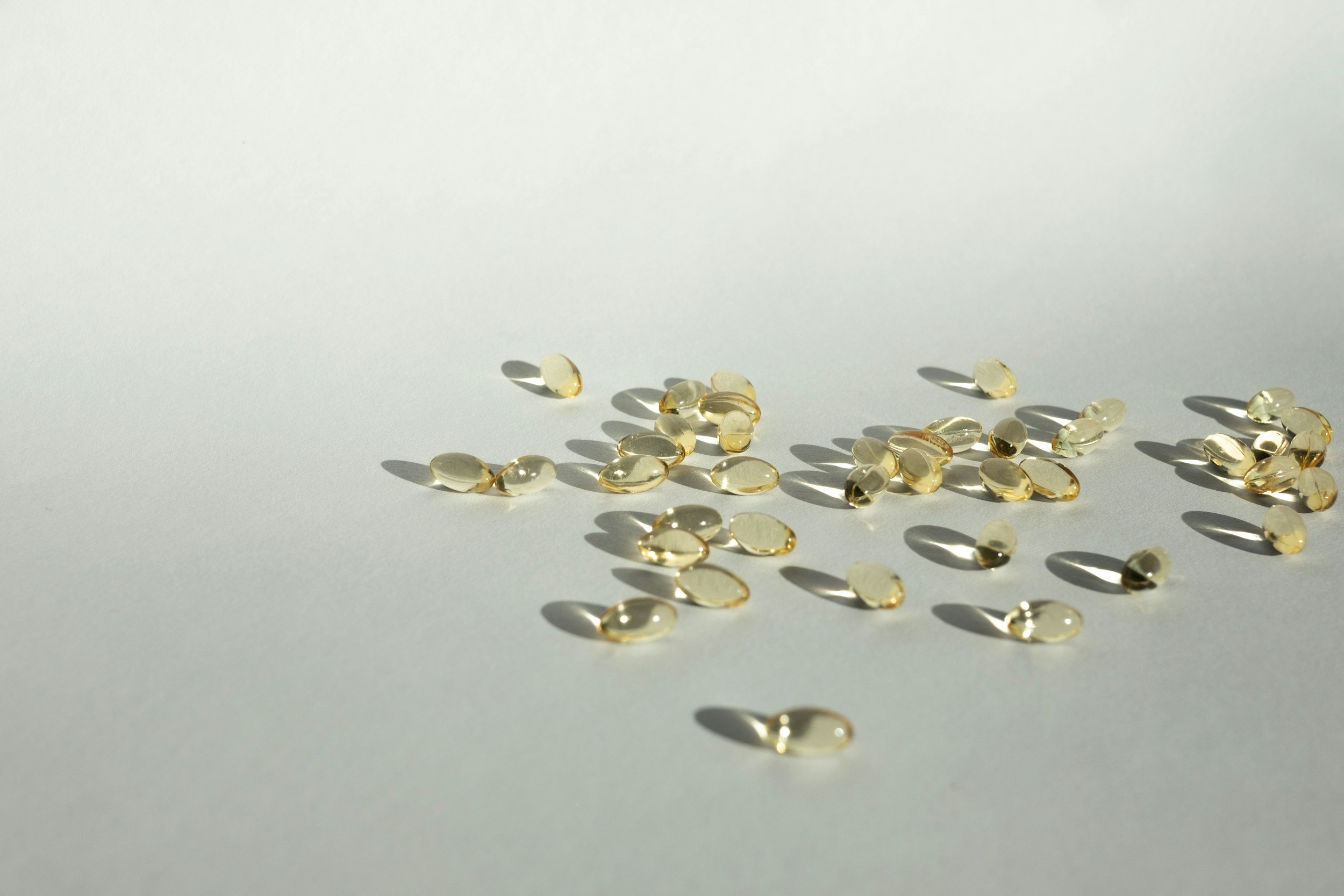Is “Happy Juice” the Cure for Burnout? Let’s Talk About the Real Fix
Let’s make one thing clear up front: this isn’t a takedown of Amare consultants or the people who swear by “Happy Juice.” If something has genuinely helped you feel better, that’s valid. But as a burnout coach and former scientist, I can’t stay quiet when I see wellness products marketed as “scientifically proven” fixes for stress — especially when the science doesn’t actually say that.
You’ve seen the claims.
“Happy Juice lowers cortisol.”
“Happy Juice heals your stress.”
Sounds great, right? The problem? Those claims don’t hold up — and they distract from what actually helps your nervous system recover.
The Science Problem
Cortisol isn’t some “bad” hormone you can just lower with a drink mix. It’s your body’s natural alarm system — essential for energy, focus, and resilience when it’s in balance. But when you’re stuck in stress mode 24/7, your system loses regulation.
That’s where companies like Amare try to sell you the shortcut: a supplement that “fixes” your cortisol. But here’s the truth — cortisol regulation doesn’t happen in a scoop. It happens through systems — how you sleep, eat, move, work, and rest.
What Amare Gets Wrong
Amare’s “Happy Juice” combines three products — MentaBiotics, Energy+, and EDGE — and claims they “lower cortisol” and “improve mood.” After digging into the research, here’s what I found:
The studies they cite use different doses than what’s in the products.
The results they claim don’t appear in the actual research.
Their Chief Science Officer Shawn Talbott has a history of FTC charges for false advertising. This FTC press release names Shawn Talbot as one of 3 defendants who had to pay out $4.5 million.
Even Amare’s own fine print says the products aren’t designed to treat or prevent disease — including stress or cortisol imbalance. So when marketing claims say otherwise, it’s misleading.
If a product makes you feel good? Great. But let’s call it what it is: a mood boost, not a nervous system reset.
The Science (Or Lack of It) Behind “Happy Juice”
I’ve seen countless posts claiming “Happy Juice” can lower cortisol. But can it really? Let’s look at the ingredients — and the science (or lack thereof) — behind those claims.
“Happy Juice” combines three Amare products: MentaBiotics, Energy+, and EDGE. The big marketing promise is that these reduce cortisol and boost GABA, a neurotransmitter tied to calm and relaxation.
But do they actually do what they say? Let’s find out.
This is a screenshot of the “clinical information” provided by Amare on Oligonol, one of the proprietary ingredients in Happy Juice.
1. Amare EDGE
This is a screenshot of the Amare EDGE nutrition label as screenshoted from the technical sheet.
Amare EDGE contains Oligonol, a lychee-fruit extract marketed for cortisol reduction. Here’s the catch: every study Amare cites used much higher doses and was tested only on men. The proprietary blend in EDGE totals just 200 mg — far below the research dose.
Bottom line: the ingredient list looks impressive, but the science doesn’t support cortisol-lowering claims at the doses actually used.
2. MentaBiotics
MentaBiotics is positioned as a probiotic that lowers cortisol and improves mood. But when you trace the data Amare references, there’s no significant cortisol reduction in any cited study. Even if the strains were proven effective (they’re not, at these levels), the dosages are again far too low.
In other words: good marketing, weak evidence. Here is the technical sheet for Mentabiotics.
In a Nutshell, there’s a Dosage Problem…
Across the board, Amare’s ingredients fall short of clinical strength. Whether you’re looking at EDGE, MentaBiotics, or Mood+, the company’s own research doesn’t back the physiological claims they make.
And when I reached out to Amare directly, here’s their response:
“The amounts we use in our proprietary blends are sufficient to help support mental well-being and healthy lifestyle along with healthy lifestyle. No supplement can address all our needs without added lifestyle habits like a healthy diet, exercise program, and good sleep hygiene, which all contribute to overall health and mental well-being.
We understand that our products are not going to benefit everyone the same as everyone has their needs and will metabolize the products as their body can but we do have plenty of customers that have used our products specifically our Happy Juice Pack and have seen positive results.
The statements and/or products discussed are not intended to diagnose, prescribe, treat, cure, or prevent disease. Please consult your doctor before
making adjustments to your regimen.”
Translation: even Amare’s own fine print doesn’t support the bold claims in their marketing. So why allow consultants to say otherwise?
The Real Lesson Behind Fixing Burnout
Even if every ingredient in “Happy Juice” worked perfectly, no supplement alone can regulate your cortisol — because cortisol isn’t the enemy. It’s your nervous system’s way of managing energy and alertness.
What actually balances cortisol?
Nervous-system-aligned systems: consistent sleep, breathwork, movement, and rest.
Boundaries around bandwidth — not more caffeine and “hustle hacks.”
Daily structure that tells your body, “you’re safe to slow down.”
Supplements can be supportive, but they’re not solutions. Burnout recovery starts with systems, not scoops.
👉 Start here with the Burnout Support Hub →
So, What Can We Say in Conclusion?
The claims made by Amare Global about “Happy Juice” reducing cortisol are misleading. Honestly, they’re not just misleading—they’re false. It’s like giving your kid cough syrup but only a sip, or taking aspirin but cutting the dose to a quarter. You can’t claim the same results when the dosage doesn’t match the research.
While it’s perfectly fine to love a product for how it makes you feel, it’s not okay to promote it using false scientific claims.
And for the consultants out there — this isn’t an attack on you. If “Happy Juice” genuinely helps you feel better, amazing. But let’s be accurate and responsible when we talk about its effects. Saying it “lowers cortisol” without real data isn’t just misleading; it’s a disservice to the people who trust you.
Unfortunately, there are also some seriously shady marketing tactics happening in this space (check out the Instagram highlights from Coach John Noel if you want proof). To be clear: not every Amare consultant is doing this — but the company allows this kind of language to circulate unchecked. That’s the issue.
Amare’s documentation says the right things — “These products are not intended to diagnose, prescribe, treat, cure, or prevent disease.” But their marketing videos and distributor scripts tell a different story.
How is it okay for a company to claim “it lowers cortisol” on one hand… then hide behind disclaimers when questioned?
It’s irresponsible.
It’s flippant.
It’s a misrepresentation of the science.
And frankly, it should be illegal.
They’re stretching the science to sell a story, and their consumers — and consultants — are the ones paying the price. That’s not integrity.
👉 Don’t make liars out of the people who trusted you. That’s always been my issue.
So, If You’re an Amare Consultant (or Know One)
If Amare removes the “cortisol-lowering” narrative from its marketing, I’d have zero issue with “Happy Juice.”
If you love it and feel less stressed after drinking it? Cool. Say that. That’s your real, lived experience — and that’s valid. But saying it “lowers cortisol” crosses the line into pseudoscience.
Unless you have actual lab results from a doctor proving your cortisol levels dropped (and even then, Happy Juice likely wasn’t the only change you made), you can’t make that claim in good faith.
So, let’s keep the conversation grounded — in truth, in science, and in systems that actually help you regulate stress long-term.
Because real burnout recovery doesn’t come from a drink mix.
It comes from nervous-system-aligned systems that build resilience from the inside out.
What Actually Does Lower Cortisol?
Here are a few proven, sustainable ways to reduce stress and rebalance your nervous system — no overpriced powder required:
✅ Nervous system regulation through breathwork and mindfulness
✅ Movement that releases tension, not just burns calories
✅ Quality sleep and consistent circadian rhythm cues
✅ Strong boundaries around work and digital overload
✅ Sustainable systems that help you manage energy, not just time
Ready to ditch the wellness hype and focus on what actually works?
👉 Start here with the Burnout Support Hub →
What Does Lower Cortisol? Check out some options below…
Ready for Real Stress Solutions That Work?
Stop wasting time on pseudoscience and quick fixes. Join my email list to get weekly science-backed strategies for managing stress, lowering cortisol, and building a burnout-proof life you love. You’ll also get exclusive access to my best resources and insider tips.
Have you tried ‘Happy Juice’?
Let me know in the comments below if it worked for you—or what you think about the science!
And If You’re Ready to Fix Burnout for Real?
Supplements are cute, but they won’t build the systems your business actually needs. If you’re done duct-taping your energy together, it’s time for a burnout-proof plan that works.








